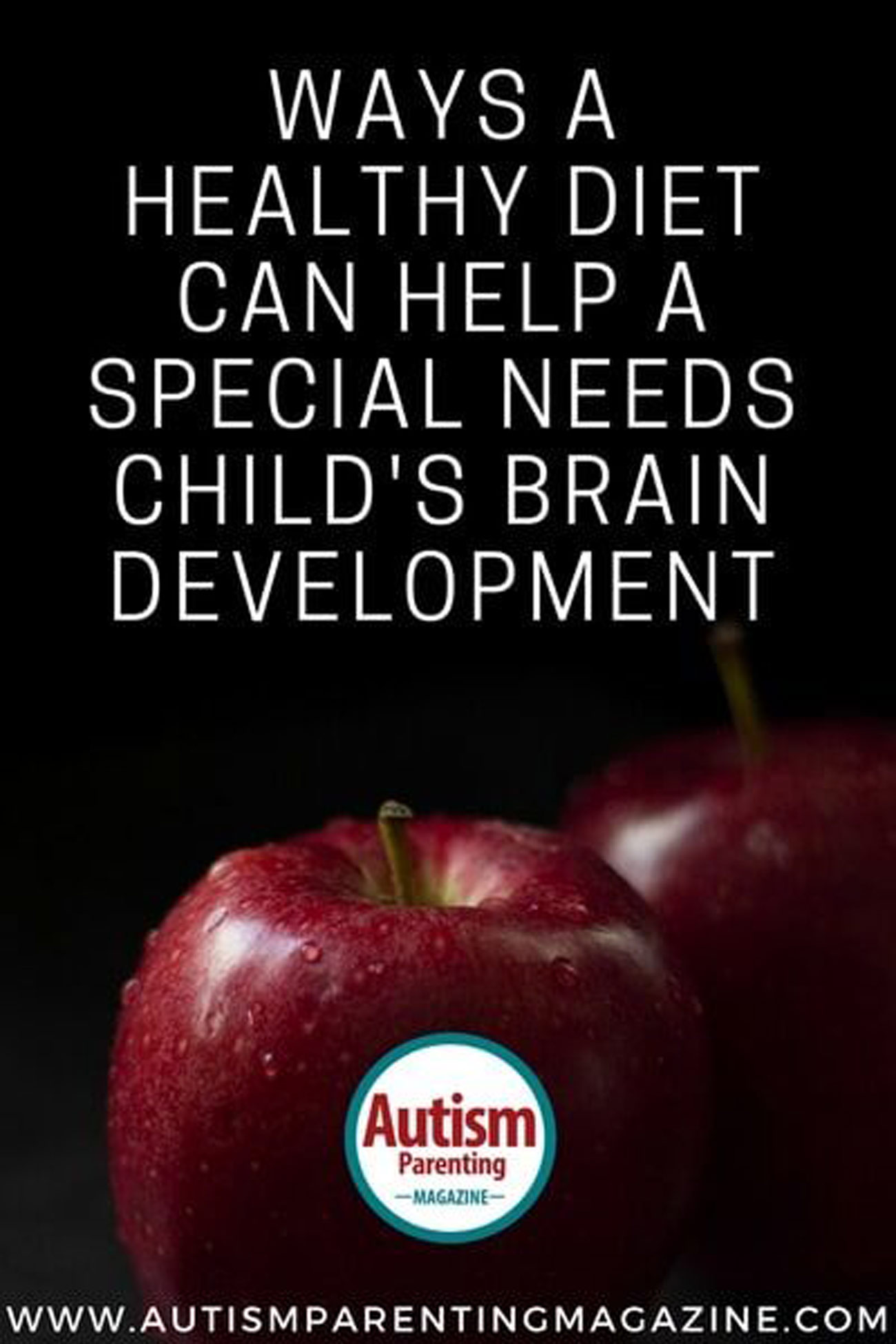
Ways a Healthy Diet Can Help A Special Needs Child’s Brain Development
© Article, images, videos and all other material courtesy of Autism Parenting Magazine
By Matthew Newell
Proper nutrition paves the way for development, eliminating barriers and promoting growth. By being selective and deliberate in the foods your child eats, you can help improve his/her brain development and behavior.
Children diagnosed with autism spectrum disorder (ASD) benefit most from organic diets. This type of diet features fewer toxins, making it easier for your child to digest and absorb needed nutrients. A fully organic diet is optimal for proper development. However, if that is not realistic, here are some tips you should consider to encourage healthy brain development for your child.
Limit Sugar
First, limit the amount of sugar your child eats. Think about how your mood changes with too much sugar or junk food. It isn’t hard to imagine the impact that same disruption can have on a child’s developing brain, especially one struggling with focus.
While I recommend completely eliminating refined sugars from a child’s diet, I understand that it can be difficult for many parents. If you’re unable to completely remove refined sugars from your child’s diet, you should reduce the amount of soda, sports and fruit drinks, cookies, desserts, and candy your child consumes. These foods and drinks have no benefit to your child’s brain development or their overall health. In fact, too much refined sugar impairs memory and shortens attention spans.
Stock Up on Healthy Fats
Did you know that our brains are 70 percent fat? The brain needs saturated fat, cholesterol, and polyunsaturated fat for growth, so it’s imperative your child regularly consumes healthy fats. No, that’s not an oxymoron. Consuming the right fats—found in foods such as avocados, extra virgin olive oil, and fish like salmon—helps lay the foundation for healthy brain development.
Children diagnosed with autism have deficiencies in these vital fats. If your child doesn’t like the taste of fish, you can overcome that challenge with an omega-3 supplement like fish oil.
Of course, not all fats are good. Certain types of saturated fats—including margarine and vegetable oil—impede healthy brain development. If you must cook with saturated fats, use only clean sources such as virgin coconut oil or ghee.
Make Water the Drink of Choice
Finally, let water be your child’s default drink. Reserve fruit juices and sodas for special occasions. As a parent, I understand this struggle. Sports drinks and sodas are at just about every event children attend. But water’s benefit is indisputable: water dilutes harmful substances in the body and promotes detoxification as no other beverage can.
Fortunately, we don’t have to wait until adulthood to see if our children’s brains are developing in a healthy manner. Issues with mood, temperament, behavior, and attention span all may be indicators of unhealthy brain development. If you follow these steps and ensure your child eats a healthy diet that includes plenty of fruits and vegetables, you may see a significant shift in his/her focus and behavior within as little as two months.
Written by Matthew Newell © Autism Parenting Magazine


